

The Tem trace their origins to what is now Burkina Faso, where they lived along the White Volta before migrating southward during the 17th and 18th centuries. They settled in the Sokodé region of Togo, establishing the influential Tchaoudjo Kingdom under the leadership of the Gurma-dominated Mola clan. The name "Kotokoli" emerged from their reputation as shrewd traders, derived from the phrase "koto kolim," meaning "they give and take back again," a nickname given by local merchants. Despite this, they proudly identify as Tem or Temba, tied to their Niger-Congo language, Tem, which remains a cornerstone of their identity.
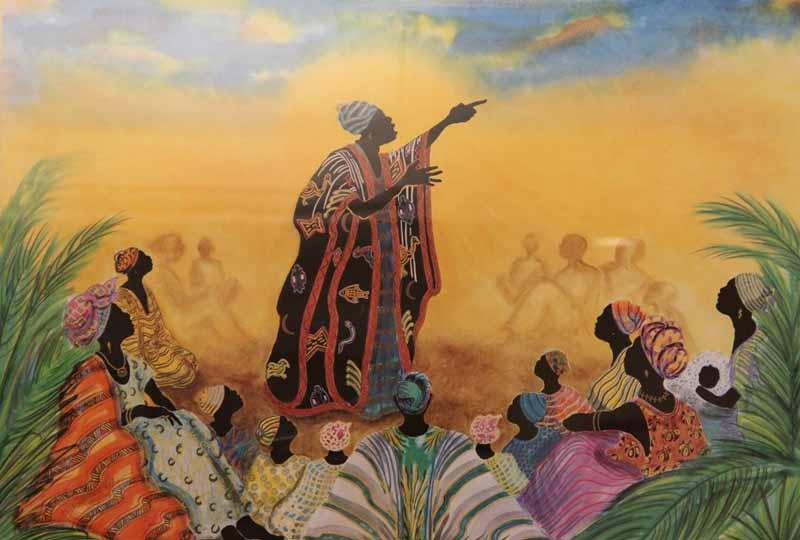
The Tem language, part of the Gur family, is not only a means of communication but also a vessel for their oral traditions. Storytelling is a cherished practice, with renowned storytellers like Seybou Sebabe Giafago captivating audiences during festive gatherings. At the end of a tale, listeners traditionally respond with "You and the Sky," to which the storyteller replies, "You and the Earth," symbolizing a connection between the community and the cosmos. Praise-singing is another vital tradition, particularly in Togo, where flutists recite family lineages and honor chiefs during public events, avoiding vocal singing as it is considered too crude for such reverence.
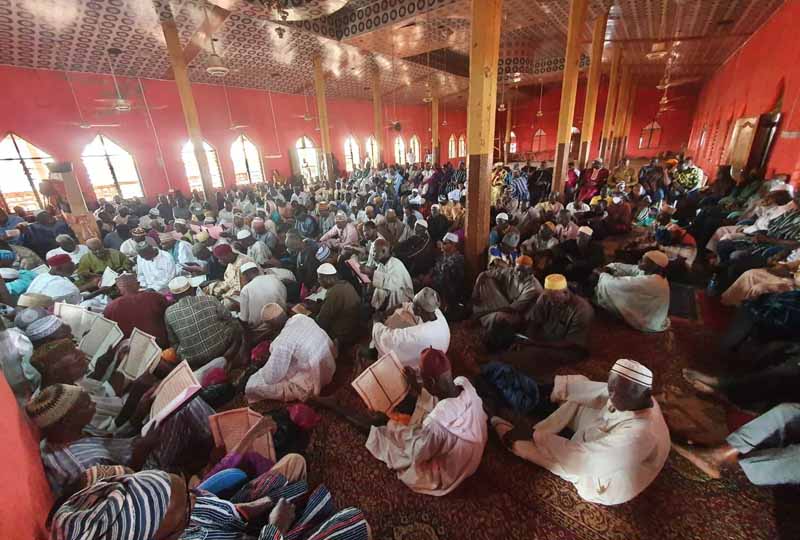
Islam dominates Tem culture, having been introduced in the 18th century through contact with Hausa and Fulani herdsmen and later reinforced by Chokossi merchants in the 19th century. Today, nearly all Tem adhere to Islamic practices, including the five daily prayers, Ramadan fasting, and, for those able, the pilgrimage to Mecca. However, beneath this Islamic framework, traditional animist beliefs persist, especially in rural areas. Festivals like Adosa, the Festival of Knives, showcase this syncretism, where young men, after consuming a protective potion, perform daring acts with sharp blades, reflecting both courage and spiritual faith.
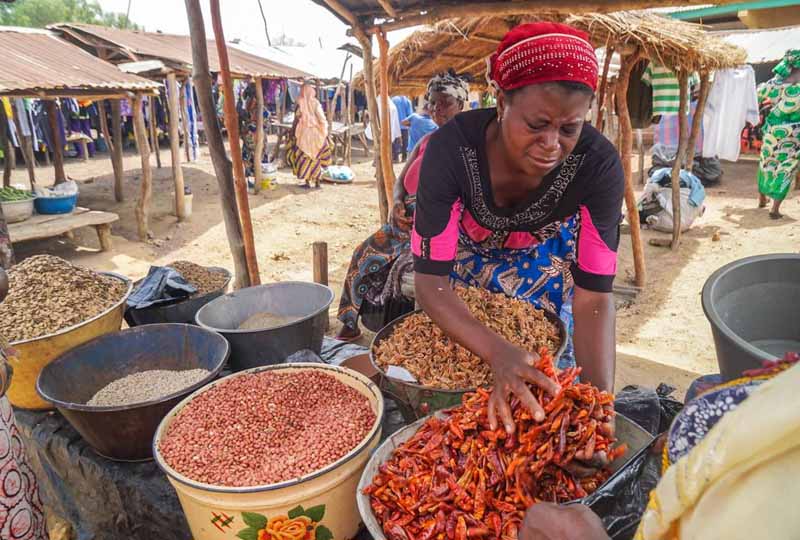
Tem cuisine is hearty and rooted in their agrarian lifestyle. Staple crops like yams, millet, sorghum, and maize form the base of meals, often prepared as porridges or stiff doughs like pâte, served with rich sauces. Groundnut (peanut) stew, spiced with peppers and sometimes enriched with goat or chicken, is a favorite. Vegetables such as okra and baobab leaves add flavor and nutrition. Meat, especially from livestock like sheep or cattle, is reserved for special occasions—Tabaski, for instance, features roasted lamb as a communal feast. Palm wine and millet beer, known as tchapalo, accompany celebrations, reflecting their skill in fermentation. Food preparation is a communal affair, with women gathering to cook for large family or village events, reinforcing social bonds.
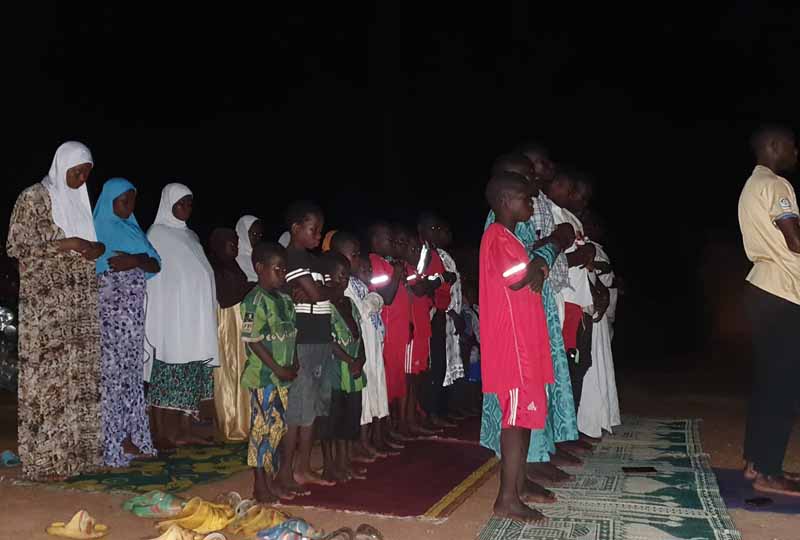
While Islam is the predominant religion among the Tem, pre-Islamic animist beliefs remain deeply embedded in their worldview. They revere natural elements—rivers, mountains, and forests—as abodes of spirits that influence daily life. Ancestor veneration is a key practice, with offerings made to ensure blessings and protection. In rural areas, traditional healers, known as tchinday, use herbal remedies and rituals to address ailments, often invoking both Islamic prayers and older spiritual chants. This syncretism is most vivid during festivals like Adosa, where the "Festival of Knives" sees participants test their faith and courage, believing protective potions and divine favor shield them from harm.
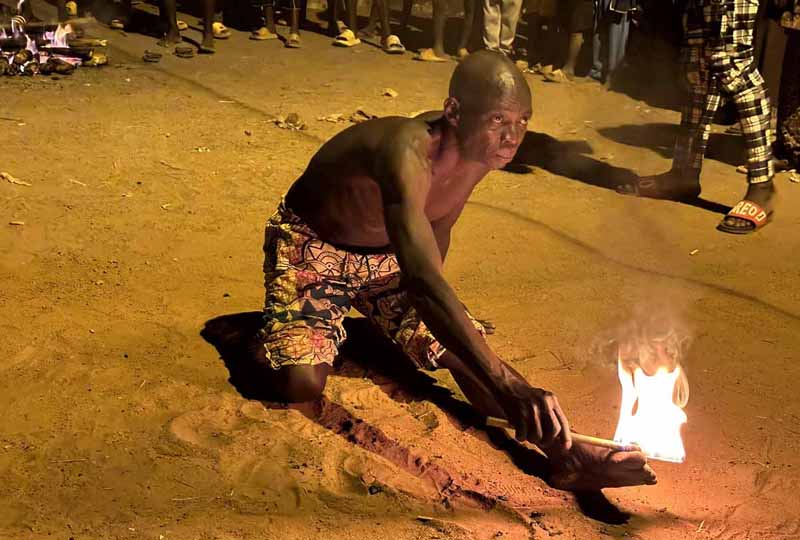
Music and dance are vibrant expressions of Tem culture. Traditional instruments like antelope horns, flutes, and drums accompany dances such as the Kumbe, a high-energy warrior dance honoring ancestors, and the striking Dance of Fire, shared with the Bassari. In the latter, dancers in a trance leap into embers and handle fire without apparent harm, a feat attributed to spiritual protection. Major celebrations include Islamic holidays like Ramadan and Tabaski, alongside traditional festivals like Adosa, which highlight their dual religious heritage.
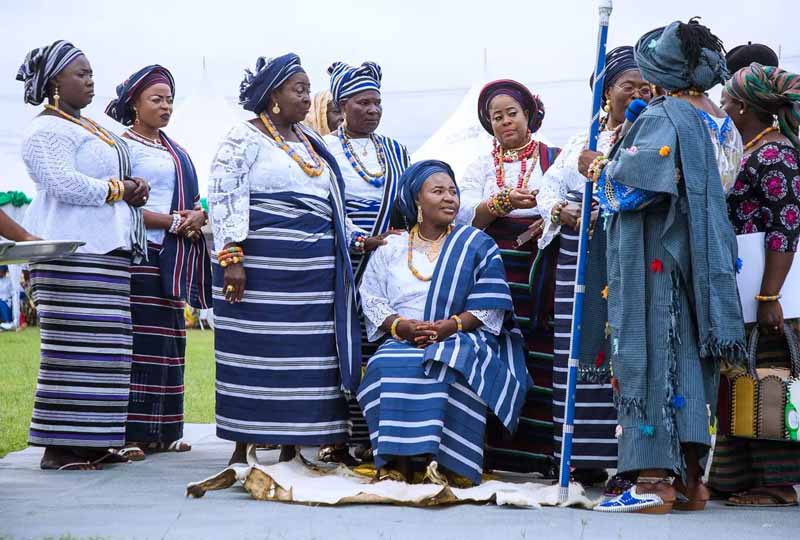
Tem traditional attire reflects both practicality and cultural pride. Men often wear flowing robes called boubous, typically made of cotton and dyed in earthy tones or bright patterns, paired with caps or turbans, especially during religious or ceremonial events. Women don colorful wrappers and headscarves, with intricate embroidery showcasing craftsmanship passed down through generations. Jewelry, such as beaded necklaces and bracelets, often carries symbolic meaning—red beads might signify vitality, while cowrie shells hint at wealth and trade heritage. During festivals, elaborate costumes adorned with feathers or leather are worn by dancers, emphasizing their warrior or spiritual roles.
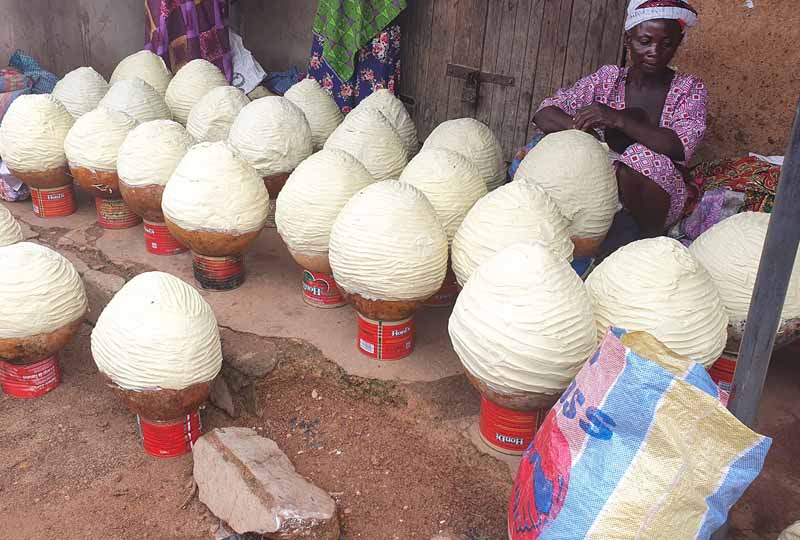
The Tem are skilled artisans, producing items that blend utility with beauty. Pottery, crafted by women, includes clay pots and water jars decorated with geometric patterns. Men excel in weaving, creating baskets and mats from straw or palm fronds, often dyed with natural pigments. Blacksmithing, historically tied to their Gurma roots, produces tools and ceremonial knives, some of which are used in Adosa rituals. Woodcarving, though less prominent, yields stools and masks for traditional rites. These crafts are not just economic pursuits but also cultural expressions, with techniques taught informally within families.
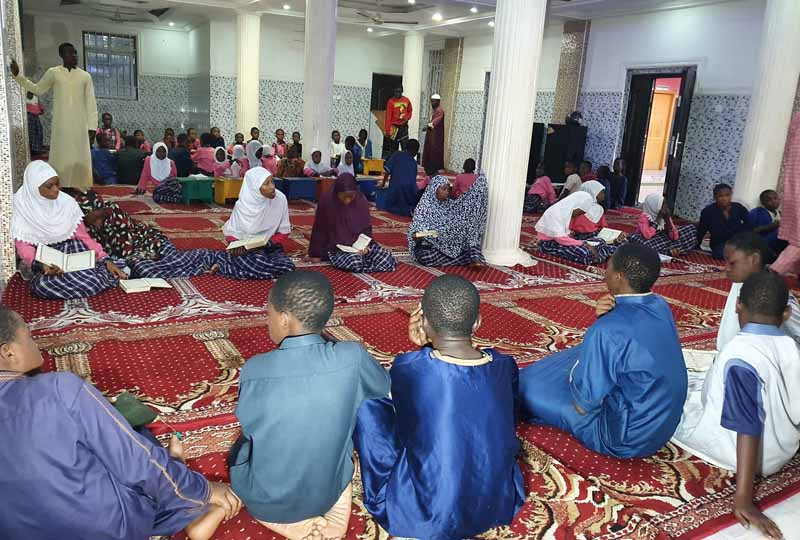
In modern times, the Tem/Kotokoli navigate a world of change. Urbanization draws many to cities like Sokodé or Lomé, where they engage in trade, education, and civil service, yet rural life remains the cultural heartland. The Tem language faces pressure from French, Togo’s official language, and Ewe, a regional lingua franca, prompting efforts by community leaders to promote its use in schools and media. Festivals and chieftaincy traditions persist as anchors of identity, though younger generations sometimes blend them with global influences like hip-hop or Christianity. Organizations like the Tem Youth Association work to document oral histories and support cultural education, ensuring traditions evolve without fading.

Join us in spreading kindness and changing the world through our unique Cultural Heritage
Exploring the Kotokoli People of Togo and Ghana:
What challenges do the Kotokoli face in preserving their language and culture?
Phone :
(352) 325- 3517
E-Mail :
info@alltembiadiasporausa.com
Address :
807 Azalea Dr North Brunswick New Jersey
Copyright © 2025 All Tembia Diaspora
| Powered by: EZ Web Solution